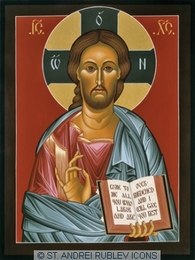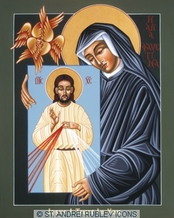 Like many of us, I enjoy a good movie every now and again. Most of the time I am not really eager to see a film as soon as it hits the big screen, but this year there was a great exception because my favorite piece of literature, well-hyped I admit, was coming to a theater near me. I have seen every version of Victor Hugo's Les Misèrables that exists and I have read the book cover to cover three times. While few productions are ever as good as the original book, this one was the best version of Les Misèrables I have seen. There is no accounting for taste, so my point is not to debate this film versus other films, stage productions, etc., and I do not intend this to be a critique of the film. I am simply stating the fact that I loved the film based on the book, which happens to be my favorite book of all time. The story revolves around an act of mercy that is thoroughly undeserved by the recipient, Jean Valjean. Because of this one act, Valjean's life is changed forever. He learns to be just, compassionate, other-centered, forgiving, and merciful: in a word, loving. He learns all of this, but not in the moment of the act of mercy he experiences. Rather it happens over a period of 20 years, most of it off screen (if you are seeing it on film.) It would be easy to leave the description at that, but upon reflection there is much, much more to it. First of all, what got this man in trouble in the first place was an act of mercy he attempted, but which broke the law. Valjean tried to steal a loaf of bread for his starving nieces and nephews (of whom there were seven!) and their impoverished mother. Stealing is clearly wrong, but as the story is set up in the book, he was desperate after working hard at various jobs such as a tree pruner and a harvester, and still could not feed all those hungry children. He was trying to save them from starvation. He paid the price, but it was overly harsh: he was sentenced to five years of living hell, which ended up being nineteen due to the brutality of the situation and an escape attempt. The society he lived in was so out of balance that a good man committed a crime in order to save his family. Maybe we can realize that not all people who commit crimes are bad people. They could, in fact, be good people who made a bad choice, or even good people who were thrust into circumstances so horrific that they saw no other way. It certainly ought to challenge us about whom we judge. Scripture says that unless we know all the circumstances, and surely God is the only one that knows this, (which includes a person's heart), we cannot judge. That is not our "job," but the job of God alone. After all, we are all guilty of something, namely sin. Therefore, the act that led Valjean to prison was an attempt at selflessness. He did not steal for himself or simply to steal. Though wrong, he stole in an attempt to help others. When on trial, he tried to rely upon the mercy of the court, but rather than to help him and people like him, the government was set up for him to pay an exorbitant price. The punishment did not fit the crime: it was far worse. He was set up to fail. The only way to survive in the prison conditions was to become hardened. He sought mercy and found none. Therefore when Valjean finally received mercy, (though he really did not deserve it due to his actions), it completely changed his life. Upon reflecting on this, it made me realize how one act of mercy can be life changing for a person. And further, mercy is not about what a person deserves. Throughout Les Misèrables, there were acts of mercy enacted by Valjean and all of them had great impact upon the recipients. He had mercy upon a lowly factory worker turned prostitute, another good person who was desperately trying to help her child. He treated those around him with mercy because he truly learned mercy’s power. I do not want to say more about the plot so as not to ruin it for anyone unfamiliar with it, but the entire book/film revolves around that one act of mercy he received which was like a pebble dropped into a pond: it formed concentric rings of mercy which moved outward in wider and wider circles affecting many lives.  Maybe we can be challenged to have mercy on those around us, letting mercy flow outwards like that pebble in a pond. Our world seems to be lacking mercy in so many areas right now. When someone cuts us off on the freeway, maybe the merciful thing is not to retaliate or to let the person know of our ire. Maybe mercy is in helping a poor friend, relative, or especially a stranger. Rather than judging why a person is without a job or homeless, even if we know there is lack of effort on their part, maybe we can do something to help get that person headed in a better direction, or give to organizations that help. Maybe we can be merciful when someone wrongs us by forgiving them. If the person does not change his or her ways and is potentially still hurtful to us, maybe avoiding them is the way to go, but without gossiping or spreading stories about them in the process. What made Jesus so remarkable were His constant acts of mercy. They were not limited to certain people or types of people. He had mercy on everyone, especially those who hated Him and those who made Him suffer. Jesus is the Son of God, so we should realize that this is also the way of the Father. God would much rather be merciful to us than to judge us and find us guilty of anything. He offers us mercy over and over. All we, (as undeserving as Valjean), have to do is accept it. If we seek out God's mercy and forgiveness we will find it. God tells us repeatedly in the Scriptures that He wishes to give us mercy, not condemnation. The Old Testament is all about that. And the ultimate act of mercy, even when we continually pushed God away, was to send His Son. We did not deserve the Incarnation, we did not deserve the salvation given us by His death and resurrection, and we do not deserve the countless graces we continue to receive. We deserve none of it! So why did Jesus do all this for us? Why does God continually give us things we do not deserve? He does this because it is not about what we deserve: it is about the nature of Love, which is who God is. It is about the fact that God sees us as His beautiful children. He gifts us with everything because He loves us. When we are selfish, ungrateful, oblivious of Him and His love, or even unmerciful to someone else, God is ready to forgive us and give us more gifts! He does the opposite of what our inclination might be. That is because of who He is. God is Love...and thank God for that. Read the story of the woman caught in adultery in the Gospel of John, chapter 8. Jesus forgave the woman and never judged her, though He did tell her not to do the sin again. We should never worry about our worthiness, or lack thereof, when we approach the Father. We should never let our feelings of unworthiness keep us from Him. If it was about that, none of us would ever dare approach Him, and that is the opposite of what God desires. He wants a personal relationship with each of us; He desires intimacy with us. He wants to lavish us with gifts of His love. This is the "secret" that Jean Valjean knew. It is what he learned with that one act of mercy he received, which was in imitation of the great mercy given us by God. May we learn the secret of being merciful by recognizing the great mercy given to us on a daily basis by our loving Father, God of All Creation! May we ask for and receive the grace of putting mercy into action in our lives so that we may teach mercy to those around us! May mercy take root in our homes, communities, and nation, as it is the one thing that will save us from destruction! May we continue to meet in the Merciful Heart of so great a Lord who is Love! Peace! The icon at the top is Christ All Merciful written by Rev. William Hart McNichols and can be found at http://www.standreirublevicons.com/gallery.php?action=viewPicture&id=54 The second icon is St. Faustina Apostle of the Divine Mercy is also by Rev. William Hart McNichols and can be found at http://www.standreirublevicons.com/gallery.php?action=viewPicture&id=158 Comments are closed.
|
Heart Speaks to Heart
|

 RSS Feed
RSS Feed

